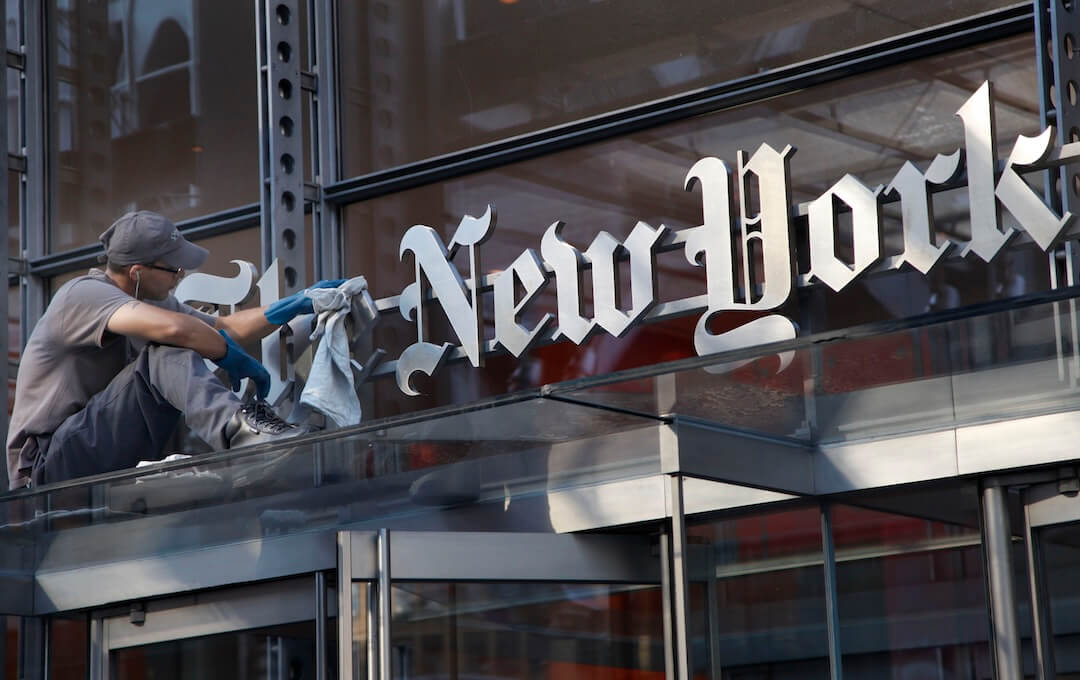If you had the opportunity to build a news organization from the ground up, what would you include? What would you do differently?
I considered this question alongside two dozen journalism and journalism-adjacent folks — activists, educators and nonprofit leaders — during the American Press Institute’s Connecting with Diverse Communities summit, held at Temple University June 8-9.
Admittedly, I was a little hesitant to attend the summit. I’m over summits and conversations and forums about diversity. I’m ready to take informed action.
But, given the opportunity to start afresh, I’d build a new foundation by reconfiguring an old one: our news values.
Timeliness. Impact. Proximity. Conflict. Unusualness. Prominence. Magnitude. Emotional Impact. These are a a bit different than the ones I learned over a decade ago, but they’re the ones being taught at my alma mater.
As a Black female Gen-Xer, I find myself questioning why I too often teach these values as though they were revealed to me through divine intervention.
Part of the promise of more diversity in the classroom, the newsroom and the community is that more people from different backgrounds can offer different perspectives, different lenses for viewing the world.
After all, “mainstream” and “legacy” media and “traditional journalism” are products of an age where few like me had a seat at the table.
The 24-hour news cycle has has forever transformed our sense of timeliness; the Internet collapses our sense of proximity with its ability to connect the four corners of the globe. Prominence has, unfortunately, given way to celebrity. Impact is far more than a simple matter of following the dollar or asking how many or how much. It demands examination of how a change in any system affects those involved in its web, and what lasting effects those changes may have.
As Mizell Stewart, my former editor at the Tallahassee Democrat, now vice president of news operations for the USA Today Network (and new faculty at Poynter, to boot), said during the summit: Our values as a society have evolved, why shouldn’t our news values?
Surely, our basic news values endure. There is no substitute for truth, accuracy and the timely delivery of relevant news. But for companies that serve hyperlocal, niche, specialty and digitally based audiences, there are unspoken, and perhaps unquestioned values that should be discussed. Any outlet that seeks to evolve and remain viable should examine its values.
Let’s start with the diverse communities we seek to serve and interrogate the values that have led us to points of failure and success in fulfilling that mission.
I asked a few friends and colleagues from different organizations and walks of life which news values they’d recommend for outlets to connect with increasingly diverse outlets attempting to reach different generations:
Tyler Tynes, reporter covering race and culture at the intersection of sports for SB nation:
Authenticity in reporting — keep it 100: There are a lot of news reporters who are aware of a lot of stories and don’t report them because they’re afraid. We should call people out, put their feet to the fire.
We should cultivate a new level of authenticity in matters both high and low. We need to be ourselves, to express our originality.
There are companies that still want you to have a news look. That news hair, that news look, because they report to a White audience. If we could keep it 100, we would serve our audience so much more — because our base isn’t truly White, it’s mixed.
When Black folks in a Black city see a Black reporter cover a crime scene, they shouldn’t feel afraid to talk to them. But when I worked in Atlantic City, they were, because of the paper where I worked. It took a few big stories for Black people to talk to me. It was sad that people felt like they had to identify me as “that black reporter” because there were so few Black reporters at the paper.
Crystal Lewis Brown, director of content for SheKnows:
Verification: Many of our current journalists didn’t go to j-school. If you grew up in the [fast-paced] Information Age…the emphasis was on checking and double-checking, because you wanted to break the story and get the clicks.
I don’t mind if a news organization gives me what they have and say “we don’t know the rest.” That’s where social media comes in. I’m following them on Facebook and Twitter, and it becomes a developing story. It’s better than saying “we know these things happened” and having to retract something later.
Autonomy: I think a lot of us got comfortable with curating. We got comfortable with saying “this is what’s happening according to [another outlet],” and that source development is something that we’re starting to miss. Traditional journalism is still doing that, but for digital media, it’s so fast, it takes more effort. Sources aren’t coming to you the way they would a newspaper in the community for many years or a journalist they’ve seen for many years.
We need to ask: What is our threshold’s going to be? Are we going to reach out these different ways?
Perspective: I think when people think in terms of diversity, they think affirmative action or a quota. I think people aren’t realizing that it’s to get varied experiences. Even the murmurings from OITNB…how are you sharing these stories of women of color when you don’t have any women of color in your writer’s rooms? It takes away nuance when you don’t have someone in the room who’s going to give you that gut-check and say you might not want to write something that way or say that.
Fiona Morgan, journalism program director, FreePress
Self-reflection: First, acknowledging that there’s never been a golden age when we upheld those values really well. There's been institutional inequality in the institutions and practices and the ways in which we've always known them.
Listening: The tech is there, but it’s not what people have come to journalism for. You get. You take in information. People need to feel heard, we need to listen to not just what they want, but what they’ve heard.
Inclusion: Getting people to the table. Who isn’t in the room? I’m looking at the Brexit stuff, and it’s so much like what’s going on here with Trump supporters and supporters of HB2.
There’s so much nihilism because people feel they’ve been left out of the process so long, they’ve been ignored so long. When you’ve been ignored so long, you’ll make any effort that you can to affect change. I always think about the media’s role in this: How do we contribute to the process? How do we contribute to the solution?
If we don’t include people, we’re part of the problem. It’s going to hurt all of us. People don’t turn to journalism, they turn to social media when they want to find out what’s “really going on,” they turn to their friends, even if they don’t have all the information.
Accountability: That’s how news becomes interesting and powerful. We have an petition right now to appeal to CNN to rescind the offer to Corey Lewandowski. We’re in a weird place to be targeting a media company. But here we have someone who created a blacklist for reporters, cut off their access, kept them in pens at events and used the Secret Service to enforce them. These are all things to me that seem to be incredibly contradictory to press freedom.
We’re trying to use people power to support journalism, even if it means standing up to the media powers that employ journalists.
Journalists are more vulnerable than they’ve ever been to efforts from private money to silence them. To enlist the power of the people, you actually have to inspire them. That’s why I see it being all connected. We want to create a posse to support the First Amendment and to support journalists.
Shefali S. Kulkarni, audience engagement producer, BBC News
Accessibility via language: From BBC’s perspective, we’re global but trying to appeal to an American audience. We’re trying to find a way to share news that affects Americans who have connections around the world: Asian-Americans, Hispanics and Latinos, African-Americans.
Accessibility via technology: It’s also a matter of who can access what you’re sharing. With younger reporters who are dealing with paywalls, part of what I’m thinking is, if you’re writing, what’s the best way to share it afterwards? I tell our interns, you’re not finished until the people you want to read it have read it.
Accessibility via communities: We recently did a story about a gay Muslim guy in Orlando who ultimately came out to the BBC. We can’t just assume he’ll read the story. We obviously need to send it to him, so he can see the story that he helped us with. He is tapped into communities that we’re not in contact with.
I’m going to share that story on Facebook groups that are dialed into the gay community. But that man in the story has a whole network of folks who can contribute to the conversation.
This is why I really love sharing our content on Facebook groups. Honestly, the comments that we get in groups are much more worth it to me than the ones on our site. You’re developing really interesting comments and a conversation, and it often leads to developing additional sources, too.






